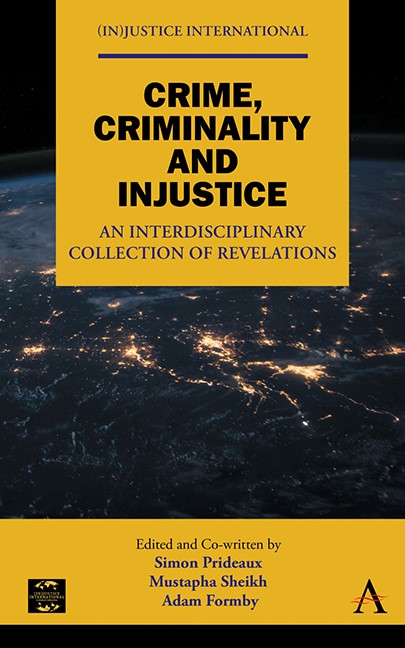Book contents
- Frontmatter
- Dedication
- Contents
- Acknowledgements
- List of Editors and Contributors
- Editor’s Introduction to the Book
- Part One Incarceration, Cultural Destruction and Ecocide: The Alienation of Ethnic Minorities, Nature and Indigenous Peoples
- Part Two The Impoverishment, Exclusion and Maltreatment of the Working Poor
- Part Three Disability, Poverty and Neglect
- Part Four Youth, Gender, Migration and Human Trafficking
- Concluding Remarks
- Index
Chapter Eleven - Human Trafficking and Sexual Exploitation in the UK
Published online by Cambridge University Press: 14 November 2023
- Frontmatter
- Dedication
- Contents
- Acknowledgements
- List of Editors and Contributors
- Editor’s Introduction to the Book
- Part One Incarceration, Cultural Destruction and Ecocide: The Alienation of Ethnic Minorities, Nature and Indigenous Peoples
- Part Two The Impoverishment, Exclusion and Maltreatment of the Working Poor
- Part Three Disability, Poverty and Neglect
- Part Four Youth, Gender, Migration and Human Trafficking
- Concluding Remarks
- Index
Summary
Human trafficking and modern slavery in the present day is defined as the transportation or concealment of an individual or group of persons against their will by means of force, kidnapping or coercion (Bondt et al. 2010). Despite increased freedoms and civil rights in the modern day, human trafficking is a considerably ubiquitous form of organised crime, primarily due to being the second most lucrative crime today (Sheinis 2012). With human trafficking being called one of the most prevalent types of organised crime activities in the European Union (EU) (Hughes 2014), it is thus important to review how and why this criminal activity remains today. Historically, forms of human trafficking, such as the slave trade, have drastically impacted upon whole cultures and societies in spite of being formally abolished. However, this legal abolition has not totally put a stop to the unlawful incarceration of individuals within contemporary communities (Truong 2001).
In the sphere of organised crime, human trafficking can be categorised in numerous forms. Forced labour, sexual exploitation and domestic servitude are but three examples (Truong 2001). This chapter will, as a consequence, focus on the sexual exploitation and forced transportation of women and children into sex work. Sexual exploitation, by means of human trafficking, is a global issue with millions of victims forced into the sex trade worldwide. And when modern slavery is viewed in the context of organised crime, it is – first and foremost – an association made up of numerous individuals who work to abduct or transport men, women or children for the purpose of financial gain by means of inflicting harm or terror (Bondt et al. 2010).
A specific example of criminally organised trafficking in the United Kingdom (UK), which will be discussed in conjunction with the wider case study of human trafficking and sexual exploitation, is the Rotherham child exploitation scandal which stretched from the 1980s to 2013 where a locally organised group were trafficking and sexually abusing thousands of children in the North of England (Meyer 2015). Overall, then, this chapter will undertake an important, much needed discussion on how neglect of the fundamental issues at a local level can implicate the UK in the encouragement of organised crime.
- Type
- Chapter
- Information
- Crime, Criminality and InjusticeAn Interdisciplinary Collection of Revelations, pp. 185 - 196Publisher: Anthem PressPrint publication year: 2023

